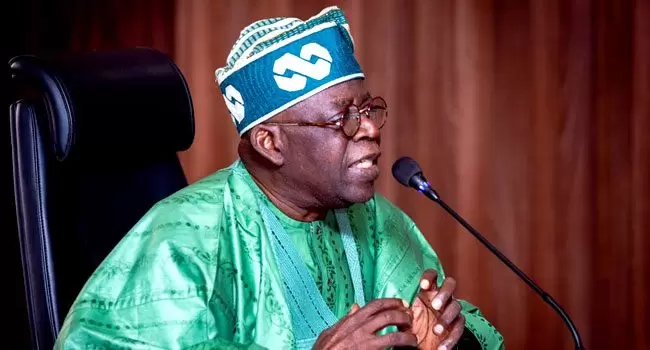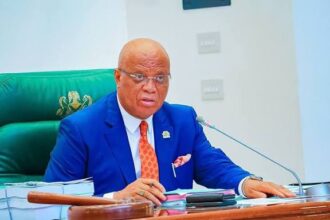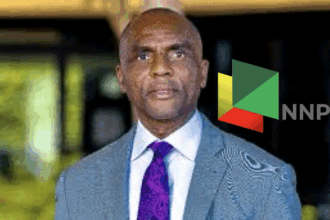-
IMF says Nigeria can unlock up to 7% GDP growth through smarter public spending
-
Only 4.4% of Nigeria’s total expenditure currently goes to education — far below global benchmark
-
Fund urges reforms in budgeting, tax administration, and public investment management
The International Monetary Fund (IMF) has advised that Nigeria could boost its economic growth by reallocating just one per cent of its Gross Domestic Product (GDP) from administrative and recurrent spending to productive sectors such as education and infrastructure.
ATTENTION: Click “HERE” to join our WhatsApp group and receive News updates directly on your WhatsApp!
In its October 2025 Fiscal Monitor Report titled “Spending Smarter: How Efficient and Well-Allocated Public Spending Can Boost Economic Growth,” the IMF said that countries like Nigeria could achieve as much as a six per cent increase in national output if resources are better targeted without expanding total expenditure.
In a statement signed by Davide Furceri, Deputy Division Chief of the IMF’s Development Macroeconomic Division, the Fund explained that the challenge is not how much Nigeria spends, but how it spends it.
“Currently, what we are projecting for Nigeria is a neutral fiscal stance, which we believe is consistent with monetary policies aimed at reducing inflation,” Furceri said.
“On the spending side, there is room to improve efficiency. Substantial gains can be achieved when countries enhance the composition of their spending. It is also important to increase social spending, particularly to support vulnerable households and ensure inclusive growth.”
Nigeria’s Education and Infrastructure Gap
Data from the World Bank shows Nigeria’s expenditure on education has declined relative to GDP — from 0.55 per cent in 2012 to just 0.35 per cent in 2022. In 2023, the country spent only 4.4 per cent of its total budget on education, far below the UNESCO-recommended 20 per cent.
For 2025, the Federal Government allocated just 7.08 per cent of its ₦66.11 trillion budget to the education sector — a drop from 8.21 per cent in 2024.
Fiscal Waste and the ‘Efficiency Gap’
The IMF observed that roughly one-third of public spending in emerging economies like Nigeria fails to deliver value. This “efficiency gap,” it said, limits the government’s ability to finance long-term growth and human capital development.
For Nigeria, closing that gap could raise output by up to seven per cent, equivalent to ₦12–₦18 trillion in economic gains if ₦2 trillion — about one per cent of GDP — is redirected from low-impact recurrent costs to capital investments.
READ ALSO: IMF Upgrades Nigeria’s 2025 Growth Forecast to 3.9%, 4.2% in 2026
Debt Pressure and Rigid Budgets
While Nigeria’s public debt, estimated between 44 and 46 per cent of GDP, remains moderate, the IMF warned that debt servicing, which consumes almost half of government revenue, continues to squeeze fiscal space for development.
The Fund stressed that rigid budgets dominated by wages, subsidies, and statutory transfers leave little room for transformative investment in education, health, and infrastructure.
The Way Forward
The IMF recommended that Nigeria adopt annual spending reviews, digitise budget and procurement systems to curb leakages, reform wage and subsidy structures, and strengthen project monitoring.
The Fund also suggested integrating education, health, and infrastructure policies within a multi-year budgeting framework.
Citing the success stories of countries like Togo, Serbia, Brazil, and Rwanda, the IMF said Nigeria can achieve fairer and stronger economic growth by prioritising human capital and public investment efficiency.



